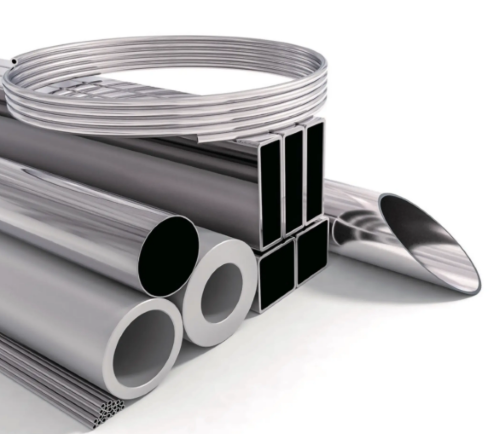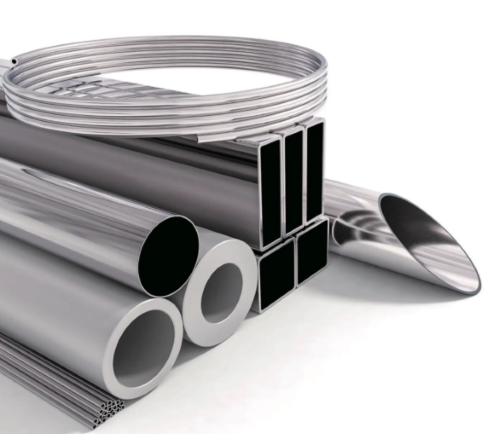
Titanium steel and titanium alloy are two materials often confused due to their shared name and association with strength and durability. However, they differ significantly in composition, properties, and applications. Understanding these differences is crucial for selecting the right material for specific uses.

1. Composition
Titanium steel, or 316L stainless steel, is not pure titanium but rather a steel alloy containing a small percentage of titanium. Typically, titanium is added to steel to improve its strength, corrosion resistance, and lightweight properties. The amount of titanium in titanium steel can vary, but it usually remains below 2% of the total composition. This blend retains the general characteristics of steel, such as high tensile strength and ductility, while benefiting from the additional corrosion resistance imparted by titanium.
In contrast, titanium alloys are primarily composed of titanium, often combined with other elements like aluminum, vanadium, molybdenum, or iron to enhance specific properties. Titanium alloys are categorized into three main types based on their microstructure: alpha, beta, and alpha-beta alloys. Each type offers unique advantages, such as higher temperature resistance or increased strength, depending on the application. For instance, TC4, or titanium 6-4 (6% aluminum, 4% vanadium), is a widely used and early-developed titanium alloy.
2. Properties and Benefits
Titanium Steel possesses outstanding properties:
- Strength and Durability: Titanium steel is highly durable and can withstand significant mechanical stress. Its addition of titanium enhances corrosion resistance and improves its lightweight properties compared to standard steel.
- Corrosion Resistance: The inclusion of titanium increases resistance to oxidation and corrosion, especially in aggressive environments.
- Machinability: Titanium steel is easier to machine and form than pure titanium or some titanium alloys.
- Magnetic Behavior: Since it contains a high amount of iron, titanium steel is magnetic, which is useful in applications requiring this property.
While Titanium Alloy offer benefits:
- High Strength-to-Weight Ratio: Titanium alloys are known for their exceptional strength relative to their weight, making them ideal for applications where reducing mass is crucial.
- Corrosion Resistance: These alloys excel in resisting corrosion from seawater, chemicals, and extreme temperatures, outperforming titanium steel in most cases.
- Biocompatibility: Titanium alloys, especially grades like Ti-6Al-4V, are highly biocompatible and frequently used in medical implants and devices.
- Non-Magnetic: Unlike titanium steel, titanium alloys are non-magnetic, which is advantageous in certain aerospace and medical applications.
3. Applications
Titanium Steel is widely used in:
- Construction and Architecture: Titanium steel is often used in structures requiring enhanced durability and corrosion resistance, such as bridges, skyscrapers, and monuments.
- Automotive Industry: Its strength and cost-effectiveness make it a preferred material for car components like exhaust systems and structural reinforcements.
- Consumer Goods: Titanium steel is popular in jewelry and watches due to its affordability and attractive finish.
- Industrial Tools: It is commonly used in tools and machinery subjected to heavy wear and tear.
Titanium Alloy finds applications in:
- Aerospace: Titanium alloys are a cornerstone in aerospace engineering, used in aircraft frames, jet engines, and spacecraft due to their lightweight and high-temperature resistance.
- Medical Devices: Titanium alloys are widely used in prosthetics, implants, and surgical instruments because of their biocompatibility and non-toxic nature.
- Marine Industry: These alloys’ resistance to seawater corrosion makes them ideal for ship components, underwater exploration equipment, and offshore structures.
- Sporting Goods: High-end bicycles, golf clubs, and other sporting equipment frequently use titanium alloys for their strength and lightness.
4.Cost Considerations
Titanium steel is generally more affordable than titanium alloys, as it contains a lower percentage of titanium and is easier to produce. Titanium alloys, being more specialized, involve higher costs due to their complex manufacturing processes and the inclusion of other expensive metals. The choice between the two often depends on the specific requirements of a project and the budget available.
Choosing the Right Material
When deciding between titanium steel and titanium alloy, consider the following factors:
- Application Requirements:
For structural applications requiring high strength and cost-effectiveness, titanium steel is a solid choice. For high-performance applications demanding lightweight properties, corrosion resistance, or biocompatibility, titanium alloys are preferred.
- Environmental Conditions:
Titanium steel performs well in moderately corrosive environments. Titanium alloys excel in extreme conditions, including marine environments and high-temperature settings.
- Budget Constraints:
Titanium steel is more economical and suitable for general-purpose applications. Titanium alloys justify their higher cost in specialized applications requiring advanced properties.
Conclusion
Both titanium steel and titanium alloy are exceptional materials, each with its strengths and limitations. Titanium steel combines affordability and strength, making it suitable for industrial and consumer applications. Titanium alloys offer unparalleled performance in aerospace, medical, and high-end consumer goods due to their superior strength-to-weight ratio and corrosion resistance. By understanding their differences, you can make an informed decision that aligns with your project’s needs and constraints. For more information, please check Advanced Refractory Metals (ARM).

